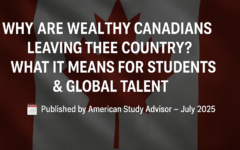How the US Supreme Court’s Recent Decision Benefits Indian H-1B Visa Workers
July 8, 2024 2025-03-28 6:29How the US Supreme Court’s Recent Decision Benefits Indian H-1B Visa Workers
The US Supreme Court recently overturned the long-standing Chevron precedent, which required courts to defer to federal agency interpretations of ambiguous laws. This landmark decision, which mandates courts to independently assess federal agency decisions, is expected to have significant positive implications for Indian immigrants in the United States, particularly those on H-1B visas.
Key Benefits for H-1B Visa Workers
Improved Review Process
The Supreme Court ruling ensures that courts will now independently evaluate federal agency decisions instead of automatically deferring to them. This change is likely to lead to a more rigorous and unbiased review process for H-1B visa applications and appeals, potentially increasing success rates for Indian professionals seeking employment in the US.
Favorable Outcomes for Visa Challenges
Previously, challenges against visa denials based on the specialization of the occupation often faced significant hurdles. With the new ruling, these challenges may have a better chance of being resolved in favor of the applicants. This is particularly beneficial for Indian professionals whose visa applications were previously denied under stricter interpretations.
Greater Accountability and Transparency
The decision is expected to lead to greater accountability and transparency in how immigration decisions are made. By subjecting agency decisions to judicial review, the ruling ensures a clearer and fairer process for skilled workers and their employers navigating the visa system.
Legal Uncertainties and Potential Challenges
While the ruling is generally favorable for H-1B visa holders, it introduces some uncertainties for H-4 visa holders (spouses of H-1B visa holders). The decision may lead to stricter adherence to statutory language, which could affect various immigration categories like “extraordinary ability” or “outstanding researcher.” As a result, legal challenges to certain USCIS interpretations could become more common, potentially impacting H-4 Employment Authorization Documentation (EAD) holders.
Organizations like Save Jobs USA are already challenging the H-4 EAD rule, arguing that the recent decision undermines its legality. This creates a period of uncertainty for nearly 100,000 Indian spouses on dependent visas who rely on the EAD program to work or run businesses in the US.
Conclusion
The US Supreme Court’s decision to overturn the Chevron precedent marks a significant shift in the landscape of US immigration law. For Indian H-1B visa workers, this ruling brings hope for a more favorable and transparent visa application process. However, it also introduces challenges and uncertainties for H-4 visa holders, necessitating careful navigation of the evolving legal environment.
As we continue to monitor these developments, American Study Advisor remains committed to providing up-to-date information and support to Indian professionals and their families seeking to build their careers and lives in the United States. Stay tuned for more updates on this and other important immigration news.
For more detailed information, you can read the full article on Business Today’s website here.
FAQs
How does the Supreme Court’s decision affect H-1B visa applications?
The decision ensures that courts will independently evaluate federal agency decisions, potentially leading to a more rigorous and unbiased review process, which can increase the success rates for H-1B visa applications.
Will the new ruling make it easier to challenge visa denials?
Yes, the new ruling may provide a better chance for challenges against visa denials to be resolved in favor of the applicants, especially for those denied under stricter interpretations.
How does this decision impact the transparency of the visa process?
By subjecting agency decisions to judicial review, the ruling promotes greater accountability and transparency in the immigration decision-making process.
What are the potential challenges for H-4 visa holders due to this decision?
The ruling introduces uncertainties for H-4 visa holders as it may lead to stricter adherence to statutory language, affecting their employment authorization documentation.
Is the H-4 EAD rule at risk due to this decision?
Yes, the H-4 EAD rule is being challenged by organizations like Save Jobs USA, arguing that the decision undermines its legality, which creates uncertainty for many H-4 visa holders.
How can Indian professionals stay informed about these changes?
Indian professionals can stay informed by following updates from reliable sources like American Study Advisor, which provides up-to-date information and support on US immigration laws and policies.








